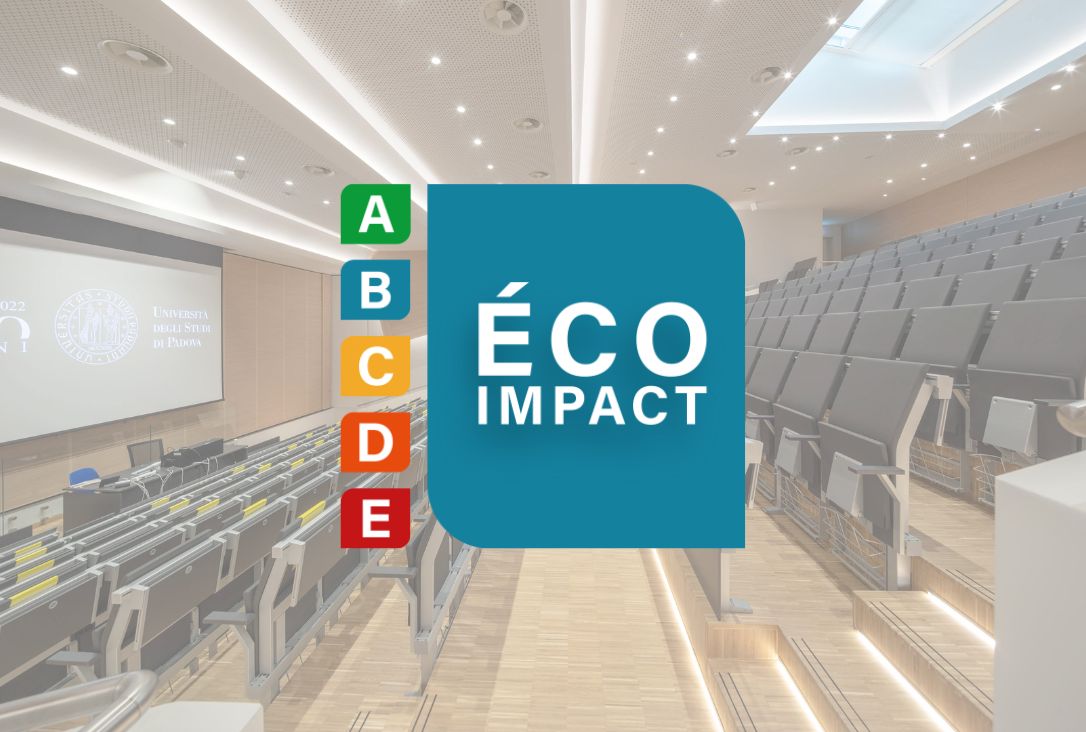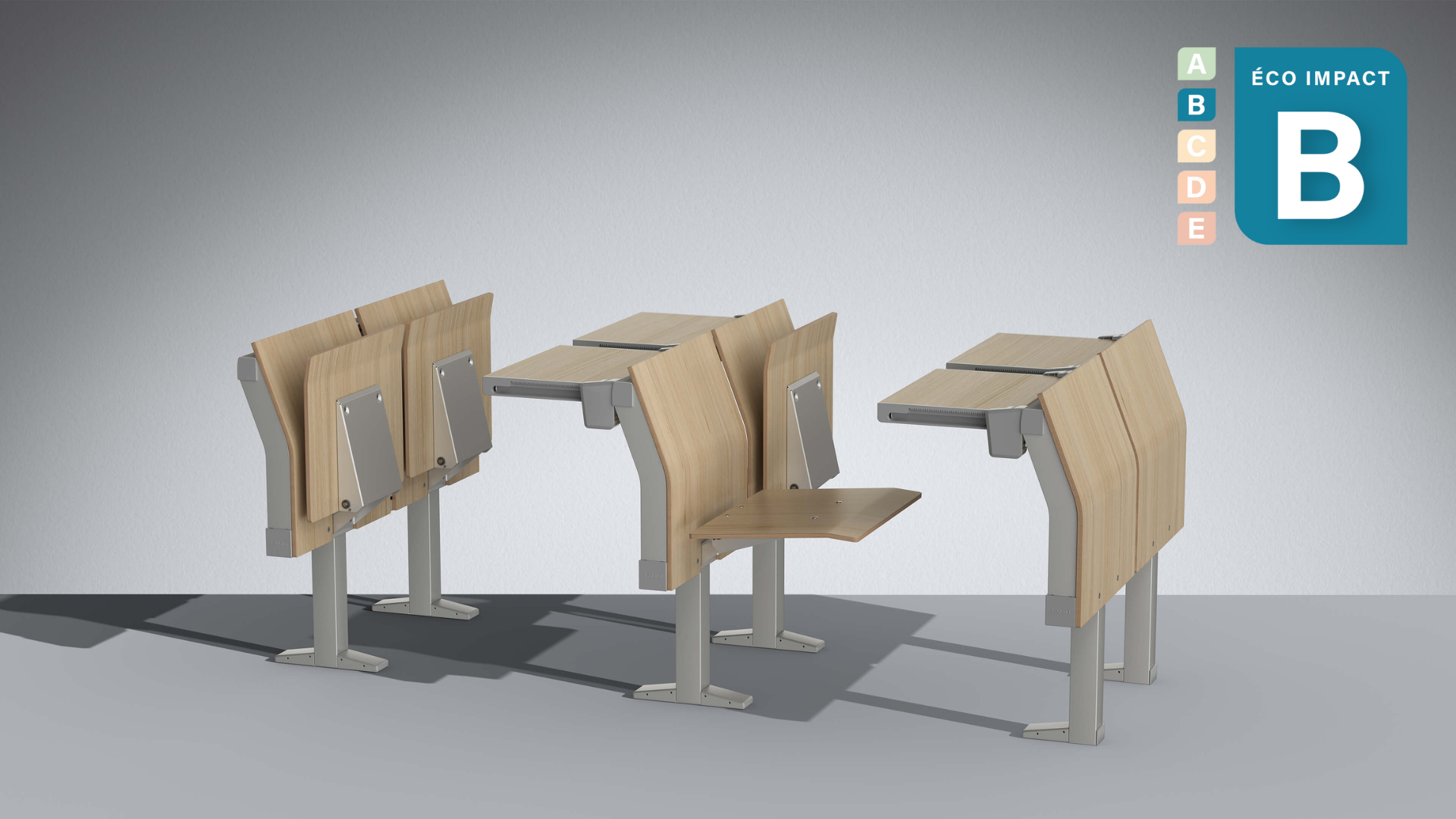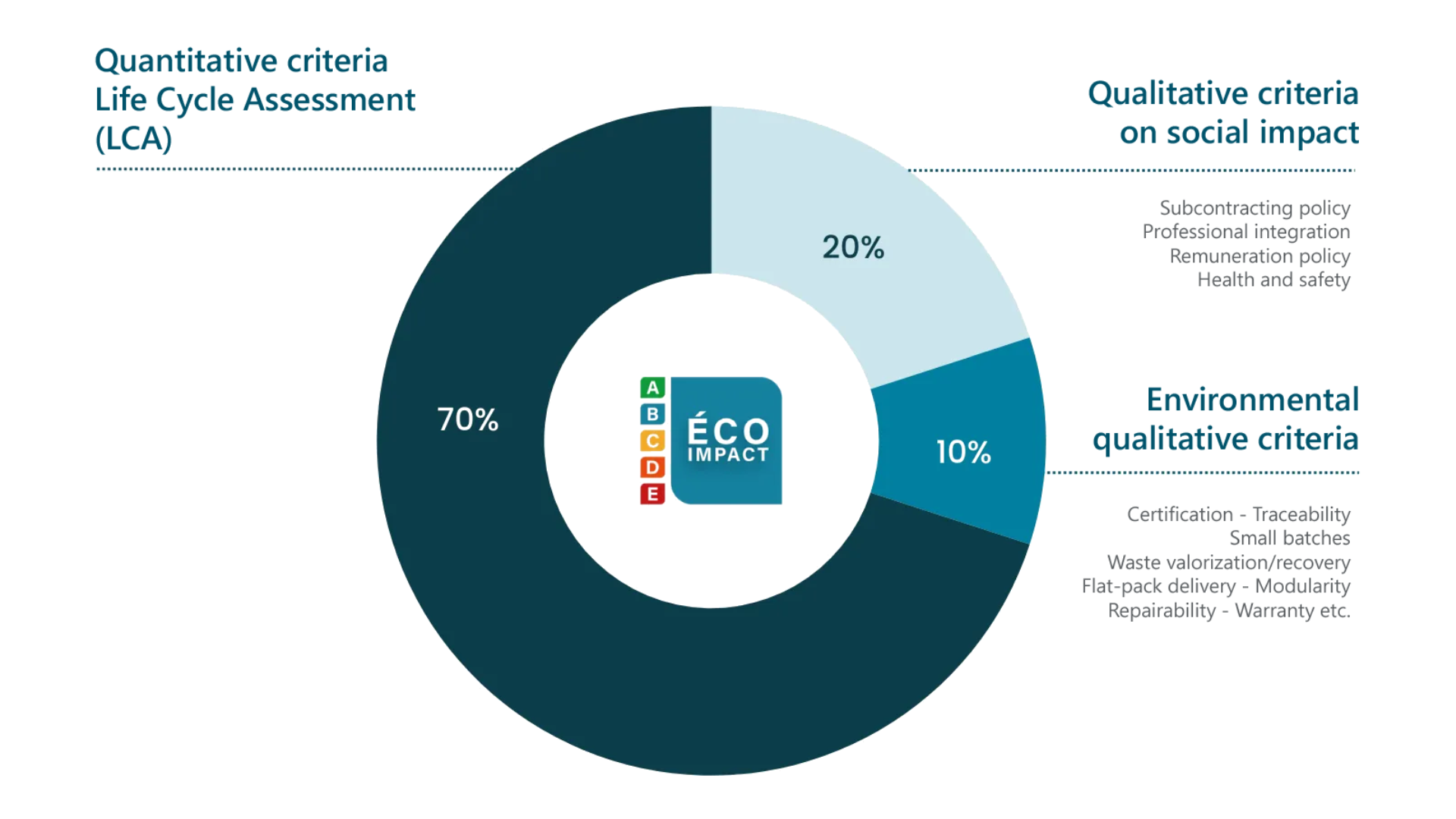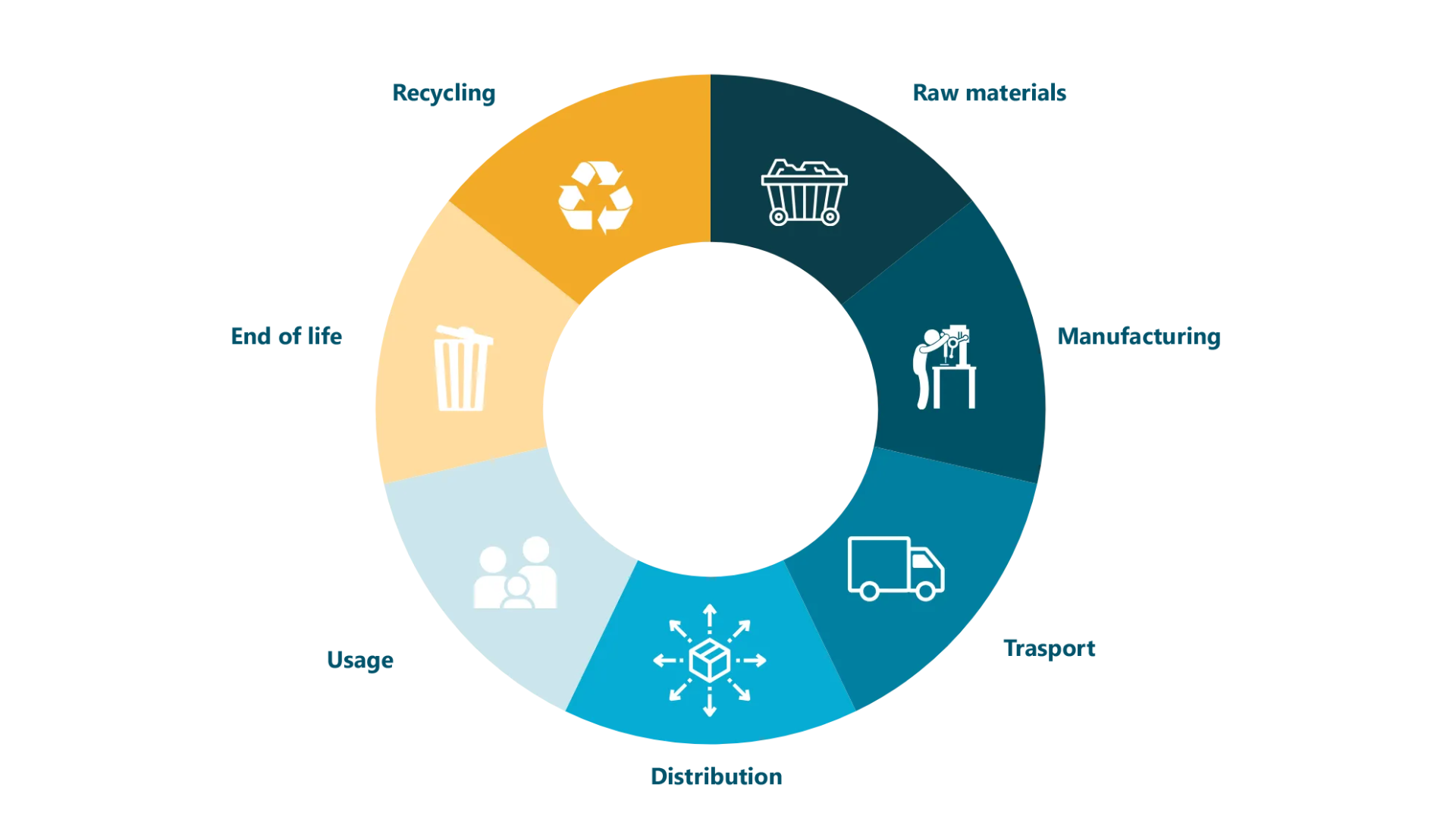LAMM first in Italy to obtain Éco-Impact rating for its furnishing solutions

A pioneering step that defines new sustainability standards in the collective spaces furniture sector.
In today’s landscape, where sustainability is no longer an option but an imperative, LAMM once again stands out for its pioneering spirit. With great satisfaction, the company announces a significant achievement: the E4000 study desk has obtained a prestigious “B” rating in the Éco-Impact analysis. This important recognition not only certifies the excellence of a flagship LAMM product, but also establishes it as the first Italian manufacturer in the collective spaces furniture sector to complete this rigorous environmental assessment. A leadership that reaffirms LAMM’s commitment to design and innovation, always focused on a more responsible future.

The result achieved by the E4000, one of the most appreciated models, is truly remarkable. In a holistic (cradle-to-grave) assessment, the product’s extreme quality and exceptional durability stand out with particular force, elements that have contributed to ensuring its long useful life. A significant data point that confirms LAMM’s commitment not only to aesthetics, but also to functionality and resistance that stand the test of time, reducing environmental impact in the long term.

The Éco-Impact analysis, although of French origin, holds universal relevance for sustainability. Anticipating the mandatory nature of this labeling – which will be in force for furniture in France from 2027 and whose principles are in line with the objectives of the new Ecodesign for Sustainable Products Regulation (ESPR) at a European level – testifies to LAMM’s proactive vision and its constant dedication to production processes and furnishing solutions that integrate the utmost respect for the environment, consolidating its commitment to a circular economy and a positive impact on the planet.

The Éco-Impact Score is a recognized label, assigned by an independent third-party body with the mission to measure the overall environmental impact of products. It provides an objective analysis that covers the entire life cycle of the furniture: from the selection of raw materials to the production phase, from use to the social impact of the supply chain, up to the end-of-life of the product. The classification system, from A (lower impact) to E (higher impact), facilitates understanding and allows consumers and sector operators to make more conscious and sustainable choices.

